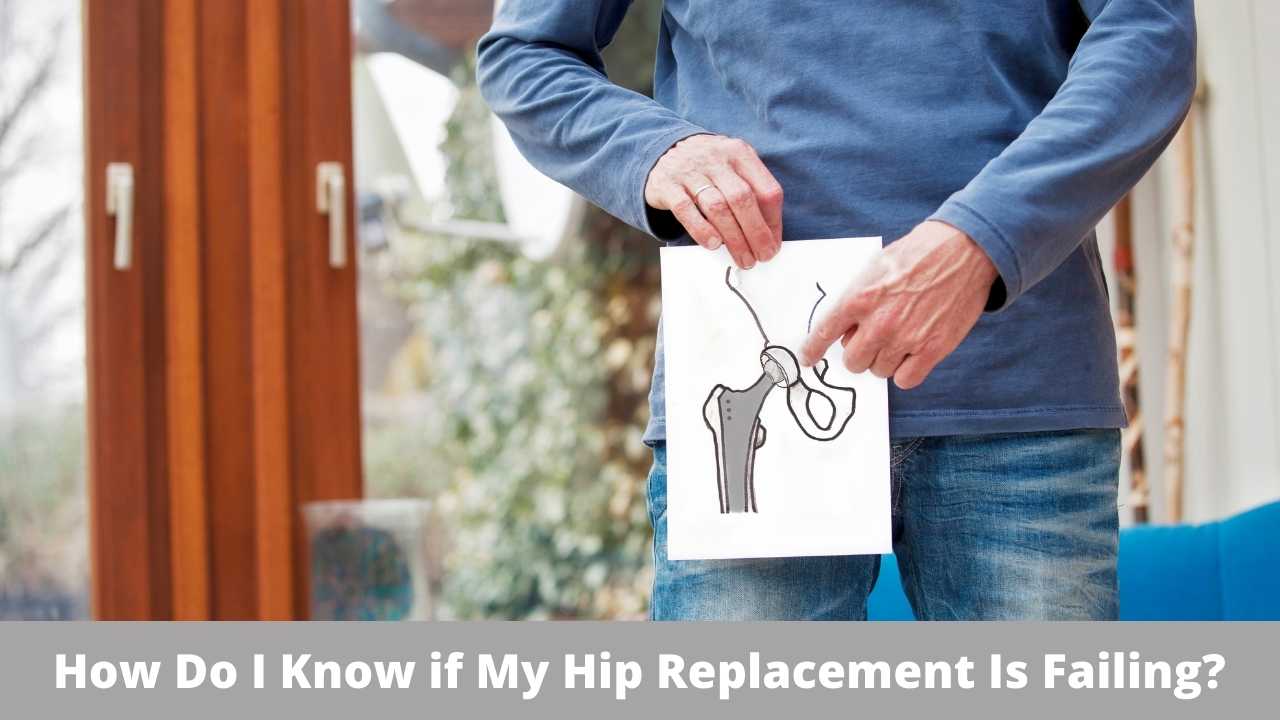Home > Blogs > Orthopedic > How Do I Know if My Hip Replacement Is Failing?
How Do I Know if My Hip Replacement Is Failing?

If you ever had your hip replaced, you may think that all the suffering, pain, and surgery is behind you. But unfortunately, hip replacements don’t always last forever. So even if one hip is replaced, you may experience hip replacement failure symptoms after some time.
You may already know hip replacement surgery is a very common procedure nowadays. It refers to replacing and removing your hip joint, including a portion of the thigh bone (femur) and pelvis, with an artificial component.
This surgery comes with a high success rate, but a hip replacement failure requiring revision occurs at approximately 1% per year for the first 15 years. So what exactly causes this procedure to fail, and what signs does a failed treatment show? Come, let’s find out!
Why Do Hip Replacements Fail?
Failure of hip replacement surgery can pose a major challenge to the surgeons and patients. Many reasons can lead to this failure, but the most common is that the replacement (artificial component/implant) becomes loose over some time. In addition, you can also develop an infection in the hip replacement or accidentally damage the bone that surrounds the implant.
Because of this or any other reason, the implant can break or wear out. Regardless of the reason, these implants only last about 20 to 25 years on average. However, some may even fail long before that.
How do I know if my hip replacement is failing?
If you wonder, “How do I know if my hip replacement is failing?,” then you may start noticing pain. The severity of pain may vary based on how deep the damage is.
Here is a list of symptoms you may experience besides pain:
- Loosening or instability,
- Infection
- Recurring or frequent hip dislocations,
- Fracture
- A metal allergy
1. Loosening or instability
During your hip replacement surgery, the artificial components were attached using bone adhesive cement or hammered into the bone so they could connect firmly with the bone. If your bone fails to grow around the component/implant or the adhesive loosens over time, your joint will feel loose, painful and unstable.
Excess body weight (obesity), high-impact activities or exercises and wear and tear of components with time can increase the chances of your hip joint loosening.
The most common symptoms associated with loosening the hip joint include:
- Pain.
- Popping or clicking sound.
- The feeling of joint movement
- Swelling in the knee joint.
2. Infection
Infection from bacteria that grows in and around the surface of prosthetic (artificial) parts can cause the failure of hip replacement surgery. In addition, once bacteria grows around the replacement components, it can become extremely difficult to remove the components, cement, and dead bone without surgery.
If you get an infection in a knee replacement joint, you may experience pain, redness, swelling, instability, drainage, or wounds that do not heal.
Seek care immediately if you also notice fever, severe muscle aches, nausea or vomiting, diarrhea, or extreme fatigue.
Most infections will need revision surgery. Your orthopedic surgeon will help you determine what type of procedure is best for your case.
3. Frequent or Recurring Hip Dislocations
If you frequently have hip dislocations after a hip replacement surgery, you may require revision to correct your hip components’ size and position.
Symptoms of a typical hip joint dislocation include:
- Severe pain in and around the hip or groin area
- Inability to walk
- Weakness in legs
- One leg is seen shorter than the other
4. Fracture
After a hip replacement surgery, an implant will be connected to the surrounding bones. A fracture in these bones may cause your new joint to get damaged or become loose. In addition, fractures may result from trauma, a fall, or a direct hit to your hip.
5. Metal Allergy or Reaction
Your surgeon might have implanted a metal-on-metal device (both the ball and socket components are metal).
However, as these two pieces rub together during daily activities, they constantly release some amount of microscopic metal particles into your body.
This may lead to an allergic reaction or allergy in some of you. Although it is difficult to diagnose a metal allergy or reaction, consult your surgeon immediately if you experience:
- An extensive area of swelling,
- Joint pain and stiffness,
- Skin discoloration,
- Skin rash near the joint, or
- Itching around the artificial joint.
Follow the below instruction to have a good recovery post knee replacement surgery and to prevent a revision surgery:

Have queries or concern ?
Conclusion
Hip replacement lasts for a long time, but it gets loose due to the wear and tear of the new hip for a long time. If you notice any of the above symptoms, undergo hip revision surgery after a thorough discussion with your doctor.
Healthy patients younger than 75 years old, with no history of any cardiopulmonary disease, can replace both their hips at once. Sometimes, it is even better to have one hip replacement at a time for a speedy recovery. Hip replacement is the best option to avoid hip pain in the near future.
Connect with our experts today to know more about hip replacement surgery and its failures!
Patient Feedback
Great doctors, Good facilities, caring and helping staff. I recommend this hospital for day care services.
![]()
![]()
Sangram Shinde
All doctors r very good. There treatments is best. Other staff also good. The service of nurses is great...Hospital is always clean.
![]()
![]()
Vaishali Aitawade
All services provide by hospital are nice and on time. Doctors are polite and co-operative with patient.
![]()
![]()
Ankita Jagtap
All services provided by hospital is good. Hygiene maintained well.Even at night good care provided.
![]()
![]()


